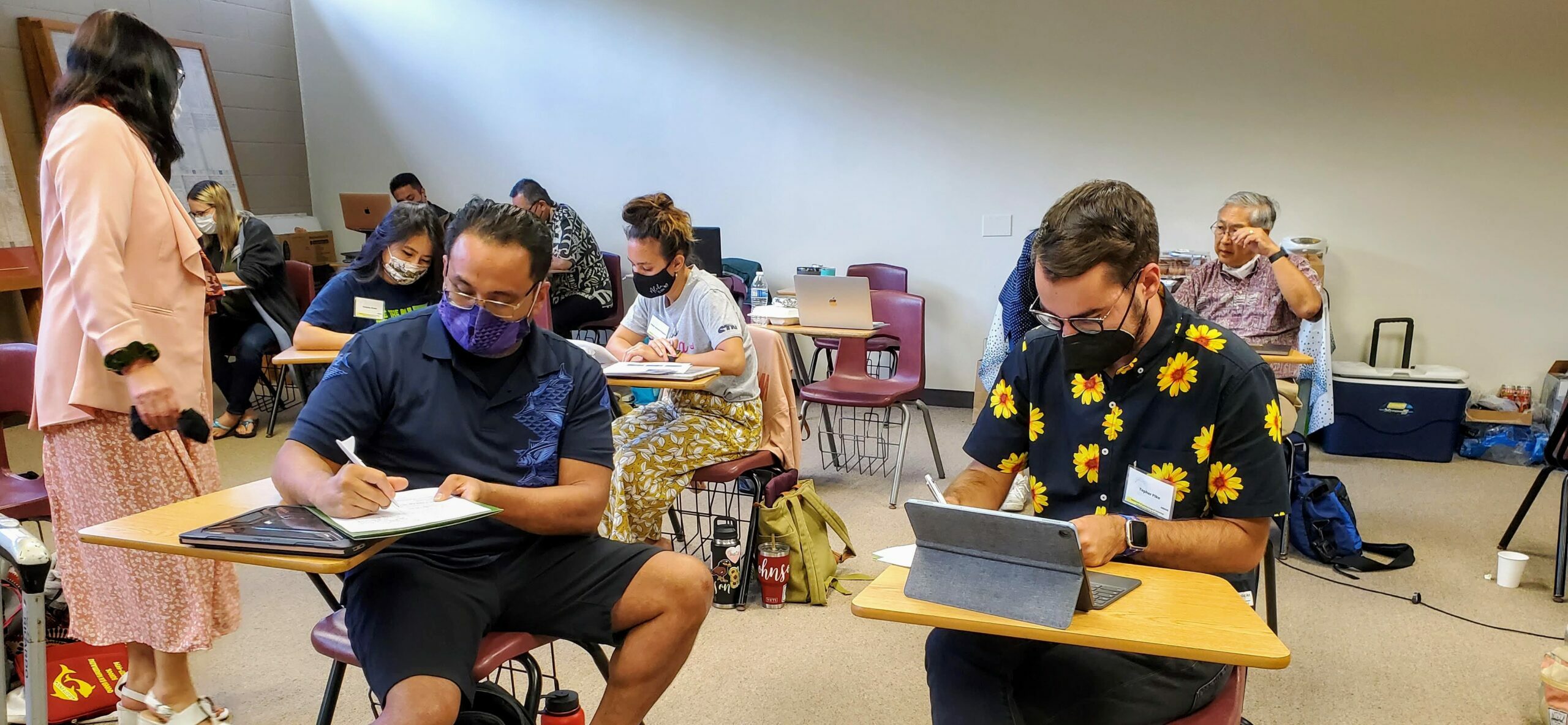
Advancing Research and Practice in Culturally-Relevant Computing (aCRC)
About the Project
Aloha! The Advancing Culturally-Relevant Computing (aCRC) project is a researcher-practitioner partnership between faculty and staff at the University of Hawaiʻi at Mānoa and the Hawaiʻi State Department of Education. This project is a 3-year initiative with a primary focus on providing upper elementary educators (grades 4-6) in Hawai’i the resources and preparation needed to integrate Computer Science (CS) education into their teaching.
We believe that structured professional development modeling culturally-relevant computing is an effective way to prepare educators to reliably produce valued CS and computational thinking outcomes while simultaneously promoting valued culture-based outcomes.
Goal 1 To develop culturally-relevant computing modules
Goal 2 To implement a professional development program about culturally-relevant computing
Goal 3 To form a professional learning community about culturally-relevant computing
aCRC is supported by the National Science Foundation’s Division of Research on Learning under Award No. 2122874.
Our Impact

Understanding the role of culturally-relevant computing in preparing educators to integrate CS education into their teaching in ways that are culturally sustaining will have an impact at local, national, and international levels. The project’s practical and theoretical outputs regarding culturally-relevant computing and its pedagogical implications will be applicable to other cultures and contexts interested in equity and diversity.
Where we are at
The project’s research and practice objectives will be pursued over a 3-year period. To accomplish these objectives, the project will follow the phases of McKenney and Reeves’s generic model of design research: 1) analysis and exploration, 2) design and construction, and 3) evaluation and reflection.
These phases will be used iteratively and flexibly, year by year, to accomplish the twofold goal of designing a culturally-relevant computing intervention, while simultaneously developing enhanced theoretical understanding of how culturally-relevant computing can be integrated into teaching to promote CS and culture-based education outcomes. Below is an overview of the 3-year study design. We are currently in Year 1 of the project.
| Year 1 | Year 2 | year 3 | |
|---|---|---|---|
| ACTIONS |
|
|
|
| Participants | 30 Upper Elementary Teachers | 100 Upper Elementary Teachers | 100 Upper Elementary Teachers |
| Data Sources |
|
|
|
| Outputs |
|
|
|
Our Research
The goal of the project’s research is to advance the field’s understanding of the role of culturally-relevant computing in preparing educators to integrate CS into their teaching using culturally sustaining practices.
Our Team
We are a team of professors, graduate students, and educators who are dedicated to improve the Computer Science and Hawaiian Studies learning experience for in Hawaii. Learn more about the members of our team.

